What MLB's parity party means for October, underwater Trout, and more
Starting Lineup is a biweekly collection of reporting, observations, and insights from the baseball beat, published every other week during the regular season.
Leading off ...
Parity is one of the signature elements of the 2024 MLB season.
No team's on pace for 100 wins, which is unusual in recent history. FanGraphs projects the Phillies to finish with an MLB-best 97 victories.
Since 2015, at least one team recorded a triple-digit win total in every full MLB season. Since 2017, at least three teams reached 100 wins in every full season.
It's been an unprecedented run of super teams.
While past eras featured fewer teams, there were only three 100-win seasons in the 1950s, 10 in the 1960s, and seven in the 1980s. There were 10 in the 1990s and 13 in the 2000s.
So, what's going on this year? Does this season mark an outlying blip or is there something driving more parity?
Savvy drafting and development coupled with significant payroll resources helped the Astros and Dodgers combine for nine of those 100-win seasons since 2017, and three World Series titles (albeit one tainted by Houston's sign-stealing). This season, the Astros are continuing a slow descent from their elite peak. The Dodgers have dealt with a number of significant pitching injuries, derailing what would have been another 100-win season.
Those issues explain part of the parity.
Another element is last offseason's spending cut tied to the game's broadcasting business model coming under great pressure.
Aside from the Dodgers, not many teams were interested in improving themselves externally, at least in judging by free agency. There was nearly $1 billion fewer dollars spent on free agents last winter ($2.95 billion) than the one prior ($3.9 billion in 2022-23), with the Dodgers accounting for 36.5% of all free-agent spending last winter.
But perhaps another issue is tied to incentives.
In the wild-card era dating back to 1995, only six 100-plus-win teams won the World Series. That's a 13.9% success rate, out of a total of 43 teams to reach 100 wins.
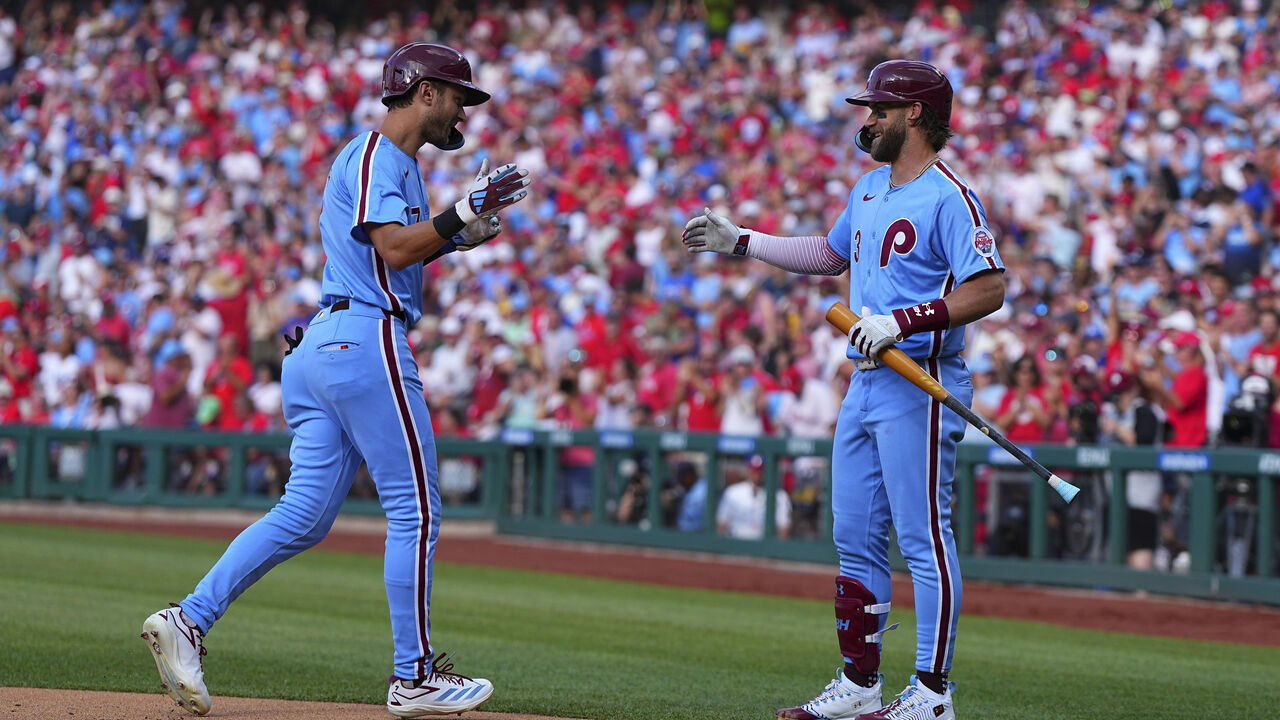
But in MLB's postseason history before the wild card existed, 44.4% of teams to record at least 100 wins won the World Series (32 of 72).
Expanded playoff fields have made it more difficult for the best regular-season teams to win the World Series. Last year, all three 100-win teams lost in the play-in round.
So, rather than push a team's chips in on one particular season, many believe they're better off trying to make the postseason as often as possible, giving themselves more chances in the increasingly random game that is October baseball. Teams are spreading resources and keeping an eye on tomorrow and today.
Whether this is good or bad for the game is up for debate.
On one hand, more teams are in contention late in the season and reach the playoffs. On the other, the World Series and league championship series feature fewer elite matchups.
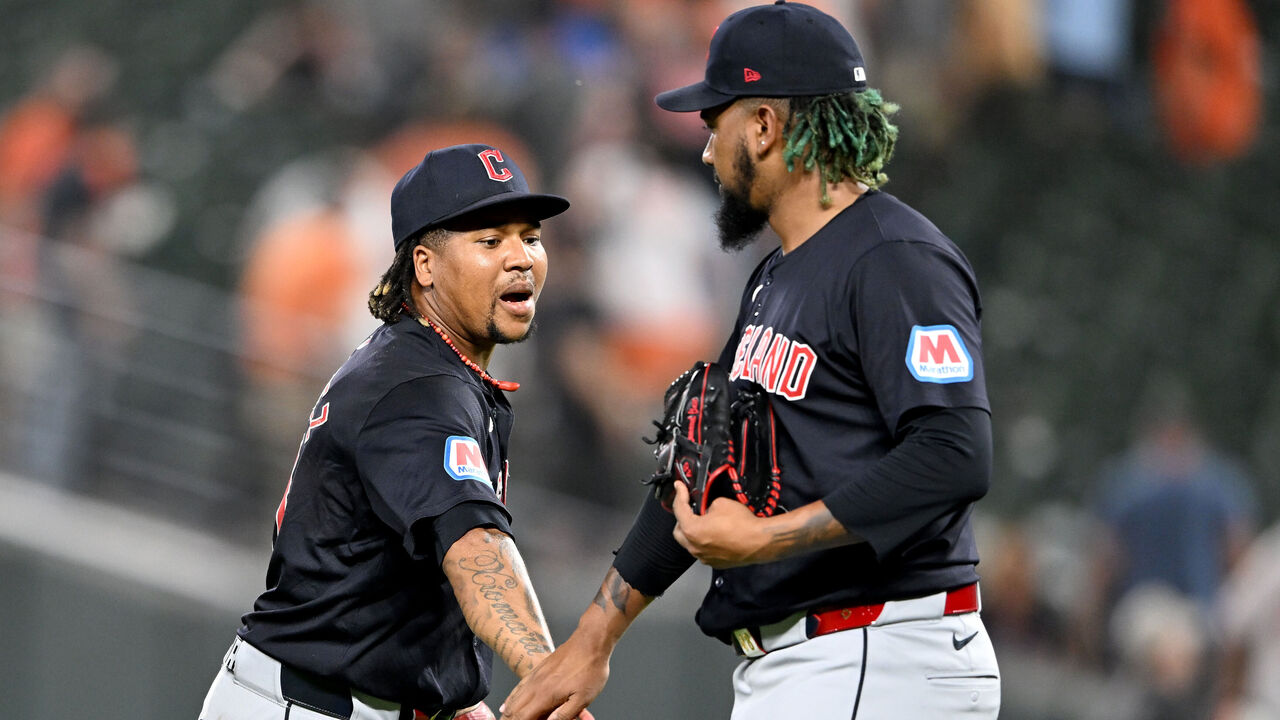
It's unclear whether this is a one-year outlier or the beginning of a trend of fewer elite teams. What it means in the short term: we could be in for a wide-open October.
The last time MLB had a full season without a 100-win team was 2014, when the 88-win Giants beat the 89-win Royals to capture the World Series. No team had to be elite to win it that year, and it doesn't appear elite status will be mandatory this year, either.
2. Underwater Trout
Expect to hear more Mike Trout trade rumors after the playoffs. So many baseball fans hoped to see him more often on grander stages. Trout's played only three career postseason games.
But how much trade value does Trout actually hold?
He's still a very good player - when he plays. He posted a 155 OPS+ over the last three years, and looked like an MVP candidate early this season. His 162-game average over the last three years includes 48 homers, 110 runs, and 97 RBIs to go along with a .268/.363./.568. slash line.
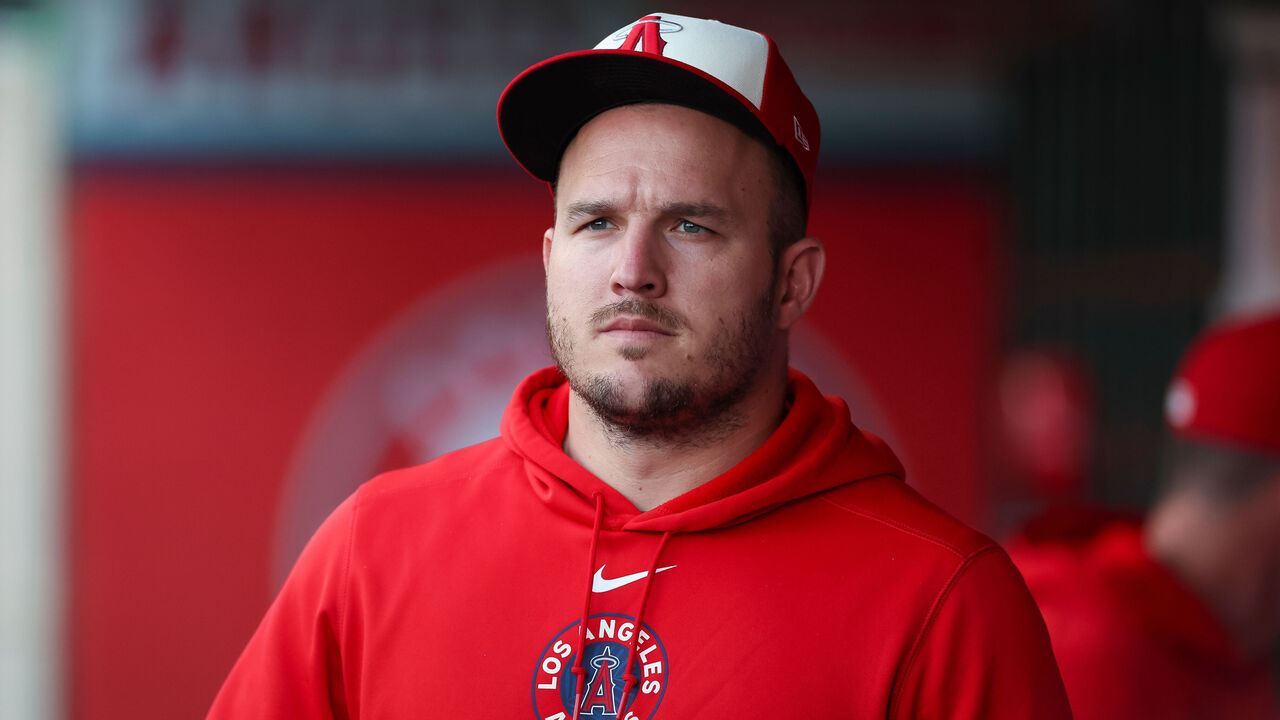
He can help any team when he's in the lineup. But he's averaged only 77 games played over the last three years. (Even with that limited work, he's still averaged 3.4 WAR per season.)
Even a limited Trout is valuable. But how valuable?
One WAR is worth about $9 million on today's free-agent market. Let's bake in some regression and age risk and assume Trout's worth 2 WAR per year over the remaining six years on his contract (FanGraphs projects 2.6 WAR next year and 2.2 WAR in 2026). That's an expected $108 million in performance value produced. Add in some WAR/$ inflation and perhaps that creeps up to $120 million.
The catch? Trout's still owed $222.7 million.
Trout holds zero trade value, in other words. Actually, it's worse than that: his trade value is negative or underwater.
Now, one can argue Trout's gate attraction adds value that isn't captured by measuring his on-field production. Either way, the Angels aren't in a position where moving Trout is going to restock their thin farm system.
The question isn't what the Angels would get for Trout; it's more about what they'd have to attach in order to facilitate a trade. Trout may very well be stuck in Anaheim until later in his contract.
3. MLB's bizarro schedule
MLB's end-of-season scheduling is weird.
The Royals, competing for a wild-card berth, played their final game against an AL opponent Wednesday. They finish with three consecutive interleague series against the Giants, Nationals, and Braves.
On the final day of the season, when playoff berths and seeding could very well be decided, there are three interleague games scheduled (Blue Jays-Marlins, Yankees-Pirates, and Royals-Braves) and only eight series between intradivision rivals.
MLB scheduling is made more difficult by having an odd number of teams in each league, meaning there must always be at least one interleague series, which is another argument for expanding to 32 teams. Still, MLB could do a better job of ensuring that end-of-season series are more compelling.
4. Can we handle the truth?
White Sox GM Chris Getz took heat last week for these comments he made during a broadcast:
We're not gonna be working heavy in free agency. We've got guys on the field right now who need to improve their game. A lot of young players who just need to make adjustments to be more productive.
No, they're not inspiring words for a fan base that's witnessed 117 losses and counting to hear, but the truth is the White Sox shouldn't have much if any interest in free agency, unless they're reclamation-project players.
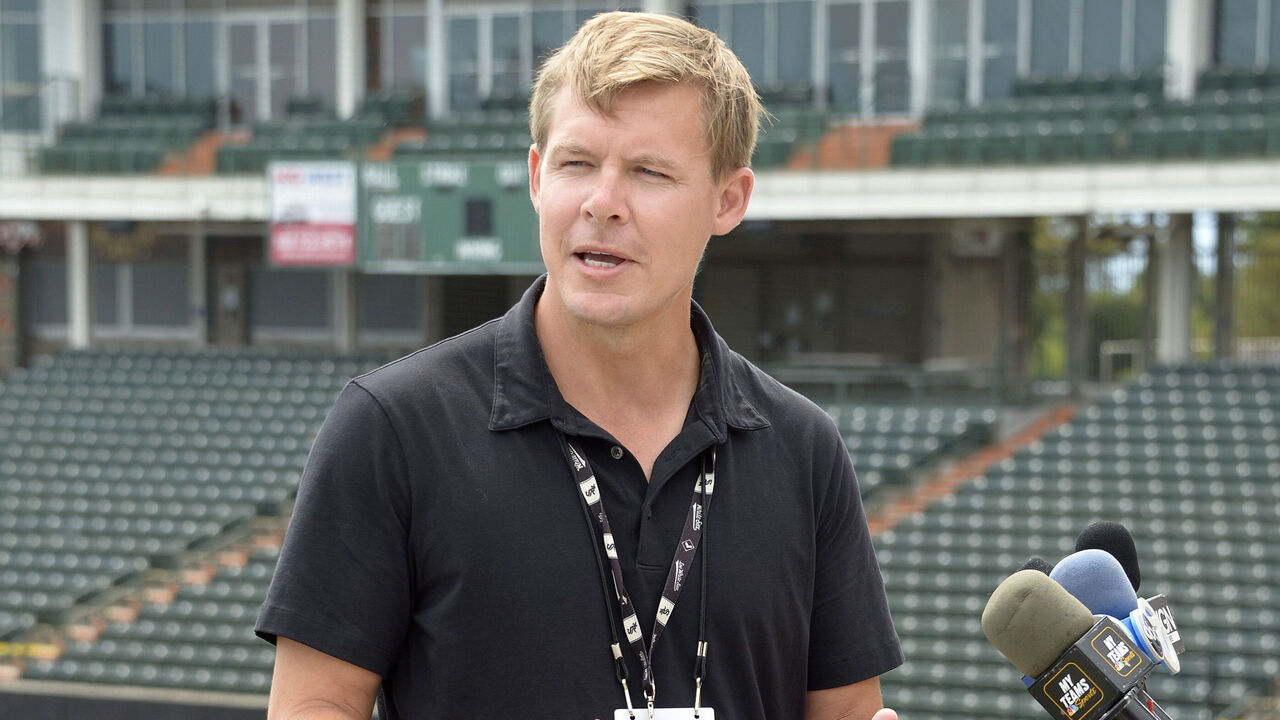
For starters, they're years away from contention. And as painful as it'll be for fans, they're best served undergoing an extended tanking run not unlike the Cubs of the last decade.
An unfortunate reality of modern baseball is that to be very good, teams often must first be incredibly bad. (Of course, draft and development execution is still required.) The draft lottery isn't enough incentive to change tanking behavior. Something like relegation or a payroll floor would be needed.
Getz simply spoke honestly and rationally. Don't hate the player, hate the system.
5. Lindor's quiet brilliance
Even as a prospect in Cleveland's system, Francisco Lindor was renowned for his baseball IQ and makeup - and that's a big reason why the Mets have surged into playoff contention.
Consider this baserunning acumen from Lindor:
My JUCO coach used to say, "On a ground ball to the left side of the first baseman, dive back behind them"
— Dr. Ismael Gallo DPT, MBA (@flowsdoc) September 13, 2024
A million IQ play by @Lindor12BC
🎥 @Espnatbat pic.twitter.com/TIsjSWUyKn
On a ball hit down the first-base line in Toronto last week, Lindor, leading off first as a baserunner, noticed that Vladimir Guerrero stepped on first after fielding a grounder before throwing to second. Lindor alertly retreated back to first after Guerrero made the throw, as the force out no longer existed. It might not seem like an incredible play, but we rarely see baserunners do this. Lindor's incredible season - he could post a 30-30 campaign - will place him on MVP ballots. He's putting up big numbers but he does the little things incredibly well, too.
6. The amazing Arráez
One of the longest stretches of plate appearances without a strikeout in the last 25 years ended Monday when Luis Arráez whiffed on a full-count curveball. It ended a streak of 141 plate appearances without a strikeout, the third-longest this century.
- Juan Pierre: 147 in 2004
- Pierre: 143 in 2001
- Arráez: 141 in 2024
Arráez's streak is even more impressive considering the MLB strikeout rate was 16.9% in 2004 versus 22.5% this season.
When employing K%+, which adjusts for strikeout environments, Arráez this season is tied for the 19th-lowest adjusted strikeout rate since 1950, matching Tony Gwynn's 1992 season.
Arráez is this generation's Gwynn.
7. Running on empty
Few players have slumped like Craig Kimbrel in the second half and the Orioles designated their former closer for assignment Wednesday as a result.
His ERA ballooned to more than 10 in the second half, after a strong first half in which he posted a 2.80 ERA and 23 saves, fourth most in the majors.
While never possessing great command, his walk rate spiked to 16.5% in the second half and his K-BB% rate plummeted to 5.5%. His poor late-game work is a big reason why Baltimore's probability of winning the division fell from 51% on Sept. 3 to 2% entering play Thursday.
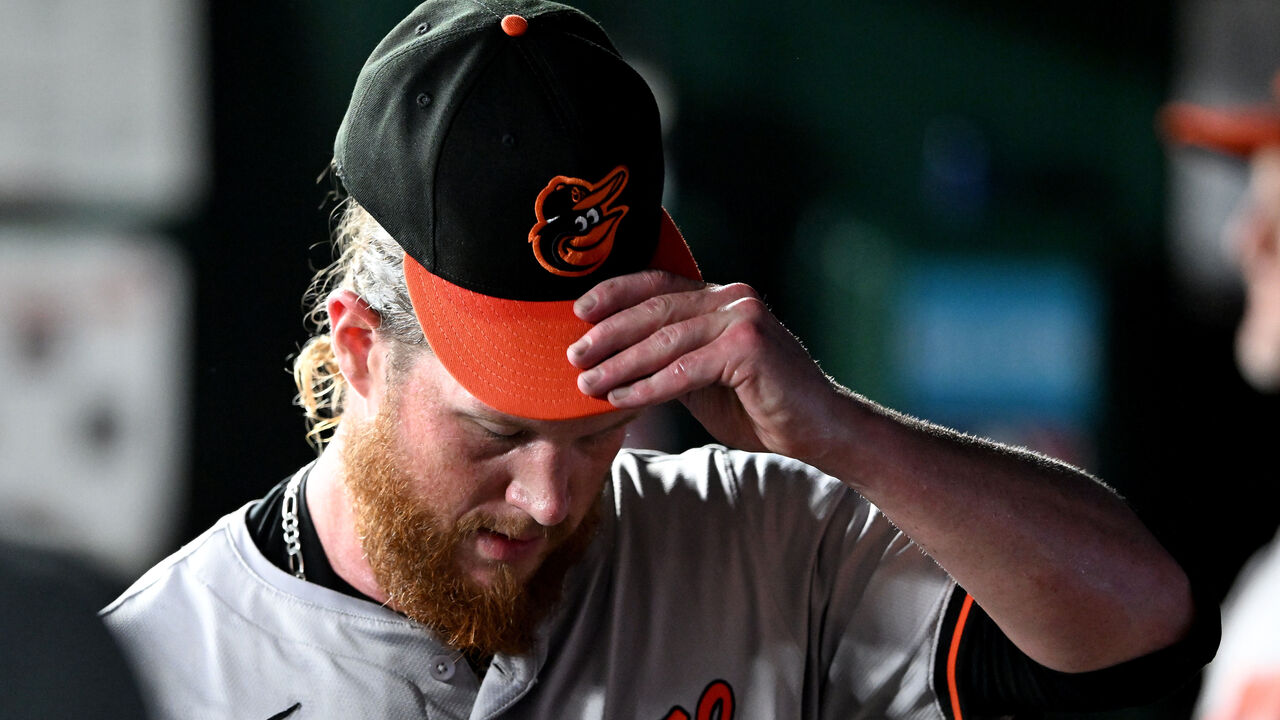
Always a streaky performer in recent years, Kimbrel's velocity was down 2 mph in the second half.
The Orioles were counting on Kimbrel to solidify the back of their bullpen, making him their greatest free-agent investment this past offseason (even if it was a relatively modest one-year, $13-million deal).
While the Orioles' drafting and development results have been excellent, their external additions at the deadline and last offseason have been mixed and will ultimately keep them from repeating as division champions.
8. Amateur ball
We don't see this every day at the ballpark but maybe we'll see it more.
We don't often see a pitcher - in this case Brandon Pfaadt - smoothly intercept a throw appearing to be intended for second base and then redirect it with a toss to third to pick off the runner. We see this play taught at the amateur level but perhaps it could be used to a greater advantage in MLB:
Just how you practice it! pic.twitter.com/VNiyTXV9dH
— Arizona Diamondbacks (@Dbacks) September 15, 2024
9. A's have a new star (send trade offers)
The soon-to-be Sacramento A's are a mess off the field. There are reports they may not play playoff games in Sacramento in the unlikely scenario they're in that position in coming seasons before they move to Las Vegas - assuming that happens.
But they do have an emerging star outfielder in Lawrence Butler. He's batting .317 in the second half after a slow first half (.211).
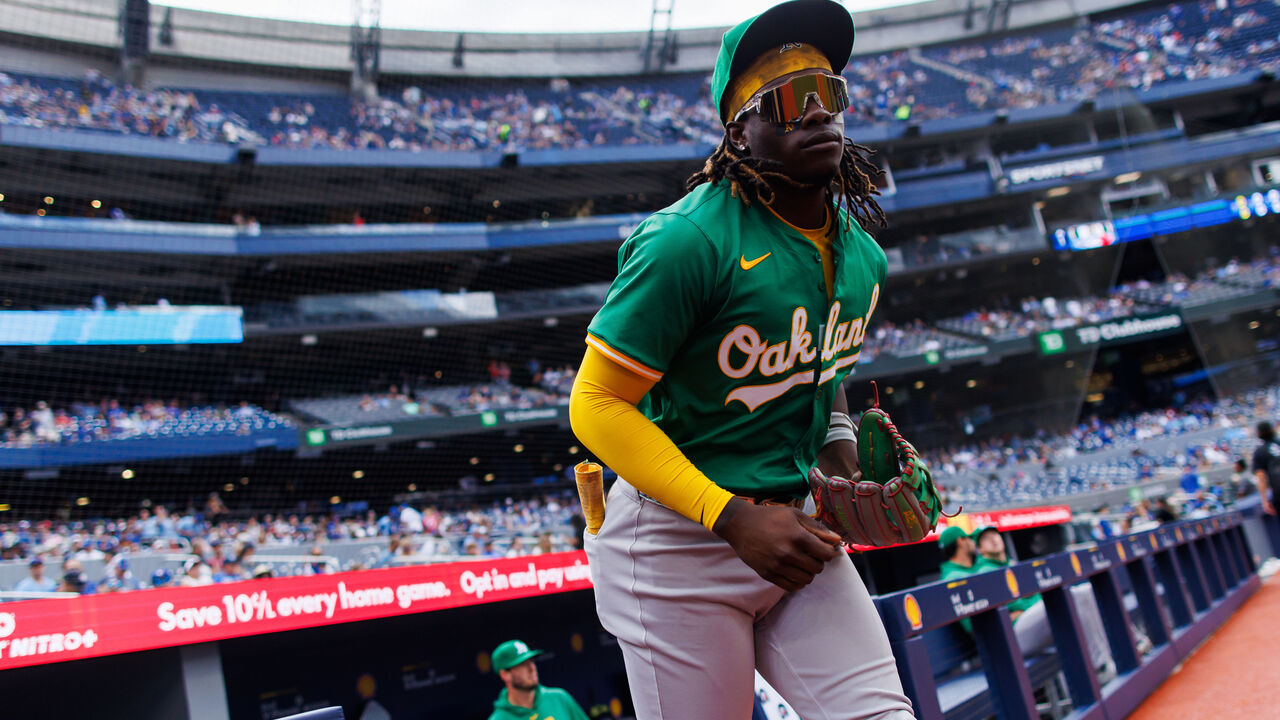
Butler owns a 137 wRC+ overall. He's hit 22 homers in just over 400 plate appearances while also stealing 15 bases without being caught. The batting numbers are supported by underlying skill: he ranks 77th out of 642 batters in bat speed (74.3 mph).
The A's do have young emerging talent in Butler and Mason Miller. But they're so far away from relevancy that it can be argued they should trade both this offseason. The Orioles could badly use Miller. Any team could use Lawrence.
Travis Sawchik is theScore's senior baseball writer